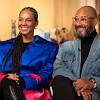They told her no one goes to a bar to watch women's sports. Jenny ...

With three seconds left on the clock, the score knotted up at 58 — the fifth tie of the fourth quarter — Notre Dame had the ball and a chance to win its first women’s basketball title.
The inbound went to Arike Ogunbowale, who muscled through the defense, dribbled twice as she moved down the sideline, and hoisted and sunk a three-pointer to seal the game against Mississippi State on April 1, 2018.
Tucked in a corner of a sports bar in Portland, Oregon, Jenny Nguyen and her friends erupted in joy and slapped high-fives while the rest of the patrons looked over in confusion.
All the theatrics from the NCAA women’s basketball championship game took place on a TV with no sound. The other two-dozen-plus TVs in the bar were tuned to regular season men’s baseball and basketball games.
Watching those dramatic games with no sound was among a long list of challenges in watching women’s sportsat bars. But this time, it served as a tipping point for Nguyen and ended up launching an entire movement.
“I was frustrated with the situation, and I blurted out, ‘The only way we’re ever going to experience women’s sports in the way it should be is if we had our own place,’” she said.
Four years later, in April 2022, Nguyen did just that: She opened The Sports Bra, thought to be the world’s first bar that exclusively airs women’s sports.


Getting The Sports Bra off the ground wasn’t easy. There were vocal naysayers who said the venture was doomed to fail, claiming “nobody watches women’s sports.” Plus, funding was hard to come by as banks tightened up their lending during the Covid-19 pandemic and Nguyen was an unemployed chef and unproven entrepreneur.
So she emptied out her savings account and turned to Kickstarter on Valentine’s Day in 2022. The Sports Bra hit its goal of $48,700 eight days laterand ultimately ended up raising upward of $105,000.
Eight months after opening, The Sports Bra surpassed $1 million in sales.
The concept has not only inspired other entrepreneurs to openwomen’s sports bars of their own, but also The Sports Bra is set to become a national franchise, helped by an investment from Alexis Ohanian, the Reddit co-founder and Serena Williams’ husband.
“Sports bars have been around for 40-plus years, and it feels like they haven’t changed much,” Nguyen told CNN. “And they were really built for 50% of the population or less. We (women’s sports fans) weren’t in mind for celebrating fandom of sports.”
Filling a niche, driving momentum
Basketball was Nguyen’s No. 1 love. The Portland native grew up watching the Portland Trail Blazers in their heyday, cutting the athletes’ pictures out of magazines and hanging them on her bedroom walls.
Naturally athletic, she took right to the game as well.
“I really didn’t want to play anything else,” she said. “My dad loves soccer. He grew up playing soccer in Vietnam, so he tried to push me in that direction. But literally every time a ball came near me, I would pick it up and want to dribble it.”
“Jenny the Basketball Player” quickly became her moniker in the schoolyard, and that followed her to middle school, to high school and to college. She met most of her friends through basketball, and, as such, most of their social excursions took place at a sports bar.

“And we really only ever wanted to watch women’s basketball,” she said.
And, typically, it was a chore.
Barkeeps frequently balked at changing channels to a women’s game, even if TVs were plentiful. Landing a women’s game with sound was a major feat.
And, unfortunately, the visits often came with harassment: Other patrons would make them feel unwelcome or unsafe.
“I thought maybe it was just my situation here, looking the way I do and feeling the way I do,” she said. “But after we opened The Sports Bra, it became clear that folks all over the place were having similar experiences to ours here.”
“The Bra” may exclusively show women’s sports, but its patrons are all ages, all genders.
“So many folks who come into the Bra, they will tell me that it never occurred to them that this was needed,” Nguyen said. “When guys come in here, they say things like, ‘Wow, it never occurred to me that when I walk into a sports bar, it’s always men’s sports.’”
A Golden Age for women’s sports
The Sports Bra’s emergence and success comes aswomen’s sports are also in the midst of a renaissance.
Records are being shattered for viewership, attendance and sponsorships; new professional leagues in hockey, basketball and baseball are getting off the ground; existing leagues are expanding with new teams, including a WNBA team in Portland that will debut in 2026; and athletes’ pay is improving.
And perhaps most importantly, those games and events are more readily available to watch and stream.
Women’s sports coverage on TV has long been overwhelmingly overshadowed by coverage of men’s sports, said Cheryl Cooky, a professor of American studies and women’s, gender and sexuality studies at Purdue University.

Cooky has researched gender, sports, media and culture for more than 35 years, notably via a longitudinal study that started in 1989 and is updated every five years tracking televised coverage of women’s and men’s sports.
As of 2019 (this year’s data is due out in 2025), women’s sports coverage on TV remained a small fraction of the coverage of men’s sports, with a mere 5.1% of TV sports news airtime devoted to women’s sports. Airtime peaked at 8.7% in 1999, when women’s soccer fandomreached a fever pitch during the World Cup.
Cooky anticipates that the coverage share picked up this year as athletes such as gymnast Simone Biles, tennis player Coco Gauff, and basketball players A’ja Wilson, Caitlin Clark and Angel Reese made history in their respective sports and helped drive visibility for all female athletes in the process.
“The legacy media can no longer dismiss the interest in women’s sports, because the interest is so much more visible now than it has been in the past,” Cooky said. “Fans can follow teams and leagues and athletes on social media and podcasts. We do have more visibility, more coverage, more content than we have in the past.”
Fueling the future
A Bar of Their Own, a women’s sports bar that opened this year in Minneapolis, subscribes to about 15 different streaming services and is frequently on the horn with providers to secure commercial streaming rights, founder Jillian Hiscock told CNN.
“We have to make it easier for people to be a women’s sports fan,” she said.
It is improving, as Hiscock has witnessed in the nine months the bar’s been open. Earlier this month, ESPN carried the UConn and Notre Dame women’s basketball game, which ultimately set season-high viewership ratings for women’s college basketball.
“We’ve seen national championship games being played on ABC or NBC, so people don’t have to have additional subscriptions in order to watch some of these games,” she said. “As for the viewership records being broken,I want to say, ‘Yeah, it’s because we’re showing it.’ This is what happens when you show women’s sports — people watch it.”

While that message hasn’t gotten through in the past, Hiscock said she feels like the momentum now is unmistakable. Not only are games being carried on major networks and more women’s sports bars are popping up across the country, but traditional sports bars are showing more women’s games as well, she said.
And Nguyen, who inspired A Bar of Their Own, played a critical role in fueling that expansion, Hiscock said.
“We’ve absolutely shown that there is the demand, and we simply don’t have the supply for all the demand in our space,” Hiscock said. “That was one of the first things (Nguyen) said to me was that it’s always been about more eyes on women’s sports.”
“She really was that trailblazer in pushing that message that has benefited all of us that have come after her and continue to benefit those that come after us,” Hiscock added.

As The Sports Bra’s brand continues to have more weight, that’s led to other revenue-generators such as merchandise sales, sponsorships, business partnerships, analytics and, now, franchising.
Nguyen told CNN that there’s been “overwhelmingly positive” interest from potential franchisees and that The Sports Bra is in the process of “thoughtfully and carefully selecting folks and cities” to join the company in its next stage of growth.
In an April video announcing his investment, Ohanian said, “You look at all these sports now, there’s undeniable excellence coming from women.… Every bar I ever walked into was only showing exclusively men’s sports.”
Nguyen sees far more to come.
“You know how you write a business plan, and at the end, they ask where you see your business in five years, 10 years, 25 years? I wrote that I’d love it if the Bra was in maybe a dozen metropolitan cities across the US,” she said. “That was my biggest dream, and that maybe we would do collaborations with Nike or work with local sports teams.”
“Clearly, I didn’t dream big enough,” she added.


 Australia
Australia Argentina
Argentina  Austria
Austria  Brazil
Brazil  Canada
Canada  Germany
Germany  Ireland
Ireland  Italy
Italy  Malaysia
Malaysia  Mexico
Mexico  New Zealand
New Zealand  Poland
Poland  South Africa
South Africa  United Kingdom
United Kingdom  United States
United States 























